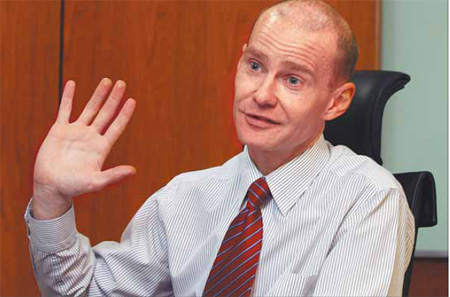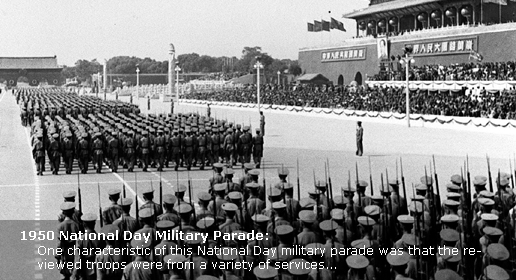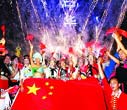60 People, 60 Stories
Buying in
By Andrew Moody (China Daily)
Updated: 2009-09-30 07:41
|
 Ken Towle, retail giant Tesco's CEO, says stores will get bigger and be more widely enjoyed. [Gao Erqiang]
|
Ken Towle, the 45-year-old president and chief executive of retail giant Tesco China, believes China will be soon the center of his industry.
Towle predicts that within the first few decades of the 21st century, fabulous state-of-the-art shopping malls will proliferate throughout the country.
These will be in marked contrast to the drab, State-owned stores of the early days of New China.
|
||||
The rise of the Chinese consumer over recent decades has truly been a world phenomenon.
Since the reform and opening up, per capita annual disposable income has risen more than seven fold from 343.4 yuan in 1978 to 13,785 yuan in urban areas, according to business information providers Euromonitor International. In rural areas, spending has grown from 133.6 yuan to 4,140 yuan.
The clinking of tills has seen China's major cities becoming magnets for some of the world's leading retailers.
Towle, who took overat Tesco in China in 2005, just a year after the retailer entered the market, says he was hugely impressed with what he saw as soon as he got off the plane.
"I thought it was amazing. What retailers like is a lot of customers and there is no shortage of them in China. I like the energy here. You can move things forward here fast. I have found it a thrilling place to be," he says.
Had he arrived only a few decades before, he would have found it a very different story.
The Chinese economy was dominated by heavy industry in the early years of New China and retail was not a primary focus.
State-owned stores overshadowed the market and product ranges were limited. Shoppers needed ration coupons to buy almost anything and there were frequent shortages leaving people without basic necessities.
There were some department stores, such as the Shanghai No 1 Department Store, selling upscale products but they were few and far between.








